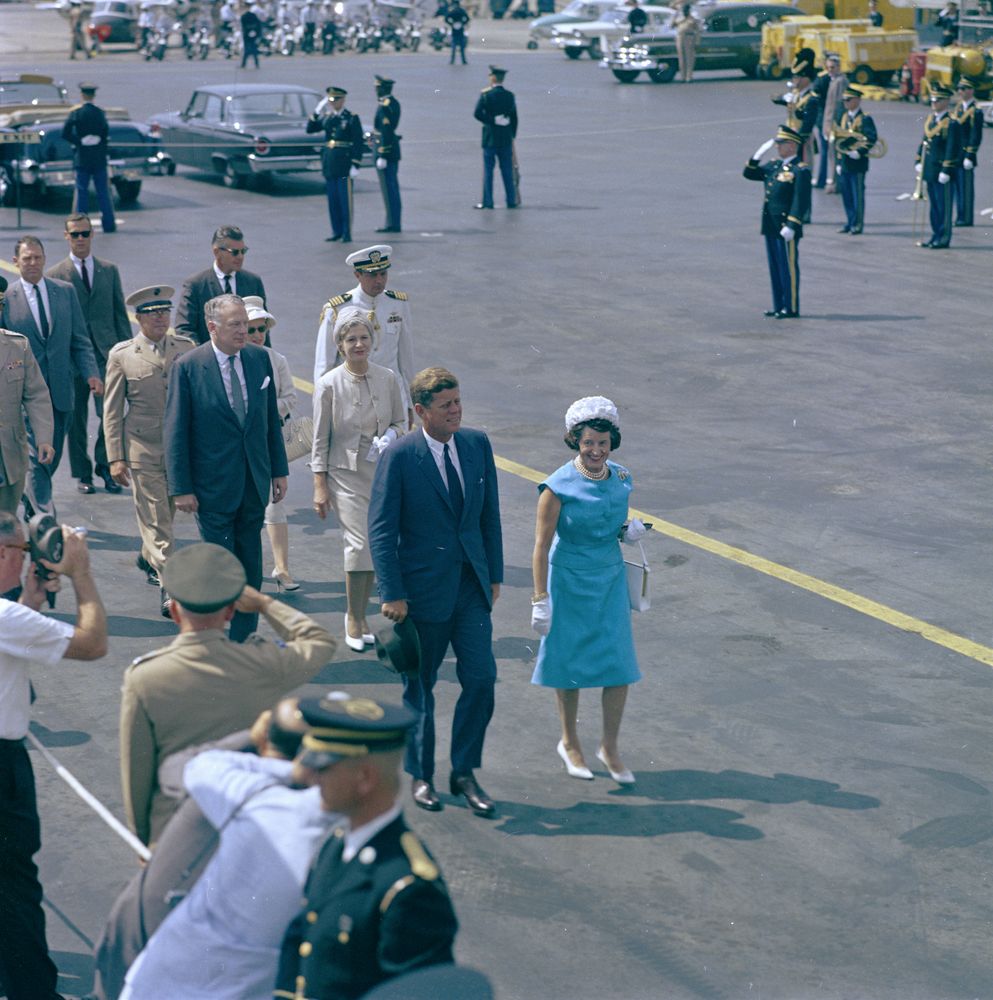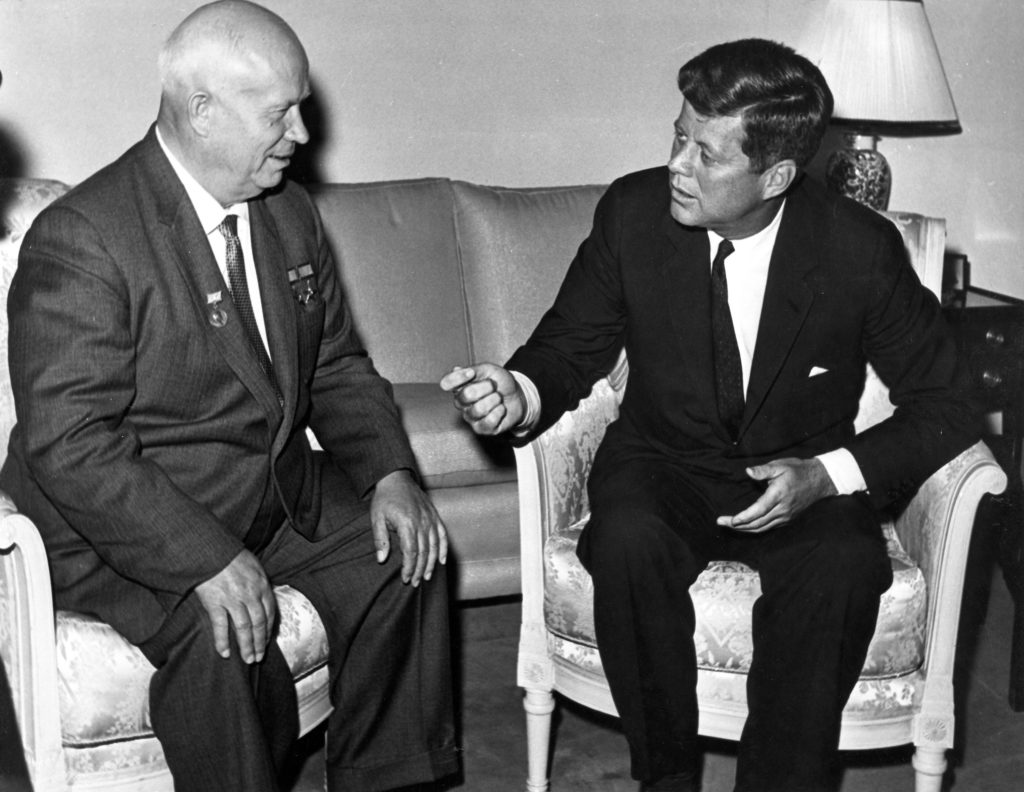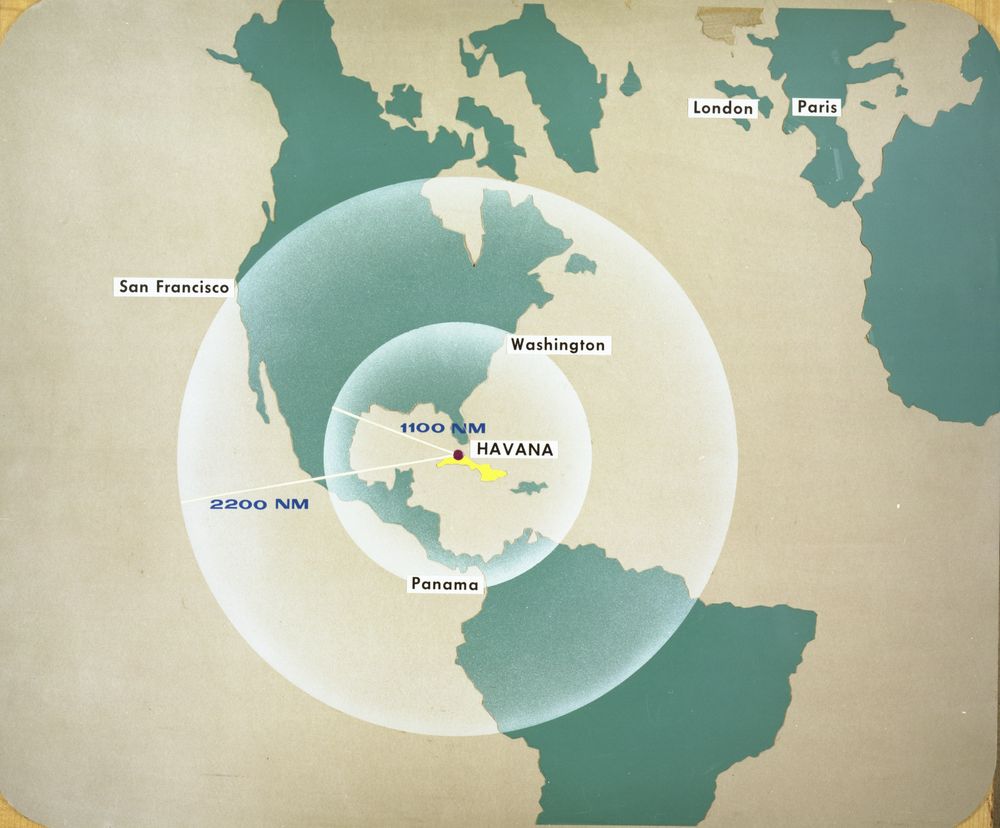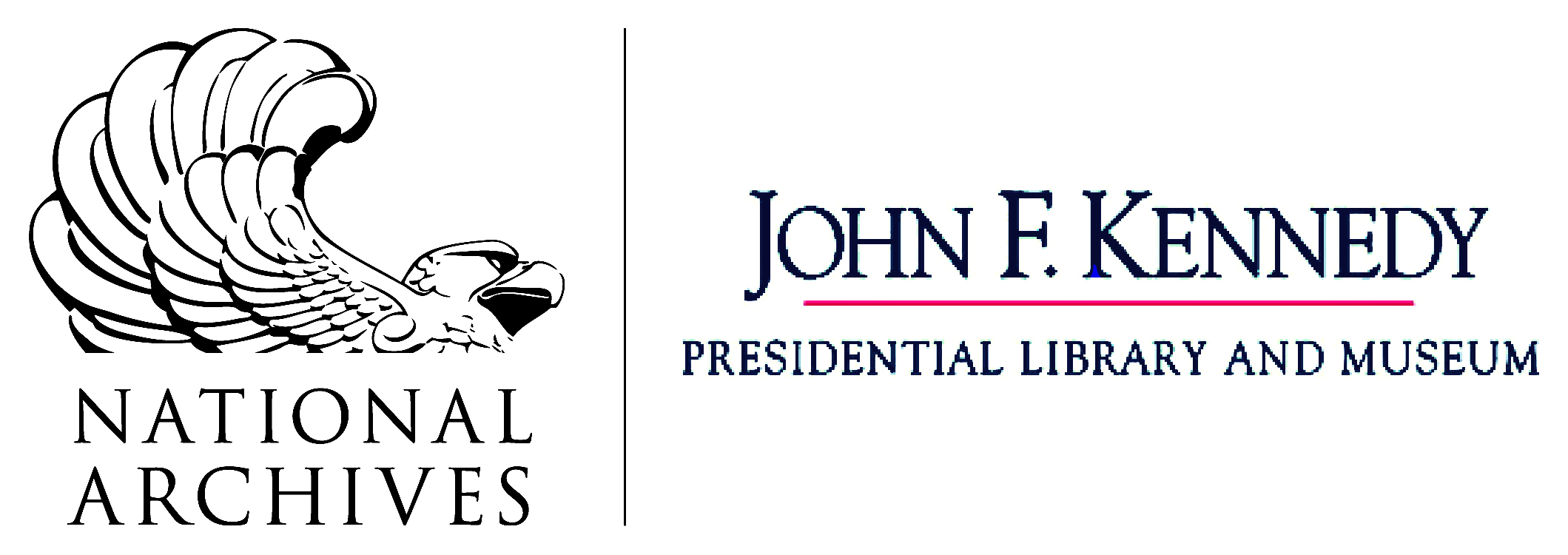(This post is adapted from a post on our previous blog, published 5/10/2013.)
By Stacey Flores Chandler, Reference Archivist

Rose Fitzgerald Kennedy was born in 1890 and lived through almost the entire 20th century, keeping detailed records on her life, family, and travels along the way. And thanks to her papers in the archives at the John F. Kennedy Presidential Library, we can see glimpses of Rose urging her children – including President Kennedy – to capture history in the making, too. From reminding her kids to write the date on their letters, to encouraging JFK to buy the furniture he and Soviet leader Nikita Khrushchev used during their famous 1961 “Vienna Summit” meetings (now in our museum collection!), Rose kept an eye on the historical record for nearly all of her 104 years.
![October 11 1962
Dear Jack,
I do not want to be a pest about this, but I am wondering whether you think it might be worthwhile to get the sofa where you and Khrushchev sat in the Embassy in Vienna?
I understand that the Ambassador is going to be changed, and I heard Mr. Matthews say that the bed in which you slept was his own, and they are delighted that they are able to keep it.
In future years the sofa will probably be an interesting acquisition. [Hand edit by Rose Kennedy: I might give to Ted.]
Love,
G. Ma
The President
The White House
Washington, D.C.
[Hand annotation by Evelyn Lincoln: Mr. President, the chairs are in the White House. Evelyn]](http://jfk.blogs.archives.gov/wp-content/uploads/sites/12/2021/04/JFKPOF-138-006-p0003-e1617906452253.jpg)
So it’s no surprise that for years, including during her son’s Presidency, Rose Kennedy kept up a side project collecting autographs from well-known people – sometimes to give as gifts, and sometimes to save for her own archives. She eventually collected signatures from artists like Robert Frost and Marc Chagall; former Presidents Herbert Hoover, Harry Truman, and Dwight D. Eisenhower; and world leaders including Prime Minister David Ben-Gurion of Israel and Chancellor Konrad Adenauer of West Germany. The fact that the President’s mother was exchanging letters with some of the most powerful people in the world seemed to go mostly unnoticed – that is, until Rose asked for an autograph from Soviet leader Nikita Khrushchev in the summer of 1962.

Khrushchev agreed to sign a few photographs that were taken of himself and President Kennedy in Vienna, and Rose received them through the Soviet Ambassador in October. Her staff quickly sent the photos on to the President, suggesting that he add his own signature – and apparently tipping off JFK that his mother had been in touch with the Soviet government. In November, President Kennedy wrote back to Rose to explain that asking international leaders for favors could be a tricky business, and to request that she “let me know in the future any contacts you have with heads of state.”
![The White House
Washington
November 3, 1962
Dear Mother:
I signed today the pictures from Khrushchev.
Would you be sure to let me know in the future any contacts you have with heads of state, etc. concerning requests for pictures, signatures, etc. Requests of this nature are subject to interpretations and therefore I would like to have you clear them before they are sent.
Needless to say the picture is most interesting and will be highly regarded.
Love,
Jack
Mrs. Joseph P. Kennedy
Hyannis Port
Massachusetts
[Hand annotation by Rose Kennedy: Refers to a photo of him + Jackie with Khrushchev + Mme K. which I requested him to autograph
R.K.]](http://archiveblog.jfklibrary.org/wp-content/uploads/2013/05/ROFKPP-057-001-p0017.jpg)
The President’s worry that his mother’s request would be “subject to interpretations” might’ve been sparked by the interesting timing of her communication with Khrushchev. On October 16, 1962, just eighteen days before he wrote his letter to Rose, JFK learned that Khrushchev was working with Cuban leader Fidel Castro to place Soviet ballistic missiles in Cuba; the discovery kicked off a two-week period of tense negotiation between Kennedy and Khrushchev that’s now known as the Cuban Missile Crisis.

In Rose’s archival records, we’ve found that President Kennedy must have learned about her communication with Khrushchev sometime between October 19 and November 3, 1962 – firmly in the midst of the Cuban Missile Crisis. The timing meant that the President’s note to his mother wasn’t the only carefully-crafted letter he sent on November 3, 1962; on the same day, Kennedy and his national security team also wrote to Khrushchev about the delicate negotiations surrounding the end of the Crisis.
![[Canceled "SECRET" designation]
November 3, 1962
Dear Mr. Chairman:
I wish to thank you for your letter of October 30. I am commenting now only on a problem raised in your letter which relates to the Cuban affair.
With respect to the quarantine on shipments to Cuba, I am hopeful that arrangements can be worked out quickly by the United Nations which would permit its removal. We were happy to agree to your suggestion that the International Committee of the Red Cross undertake responsibility for inspection. You are, of course, aware that Premier Castro has announced his opposition to measure of verification on the territory of Cuba. if he maintains this position this would raise very serious problems. So far as incoming shipments are concerned, I understand that efforts are being made to have the International Red Cross carry out the necessary measures at sea and I hope that these will be successful. In the meantime, perhaps the existence of the quarantine can be of assistance to Mr. Mikoyan in his negotiations with Premier Castro. I should also like to point out that in an effort to facilitate matters, I instructed our delegation in New York to inform your representative there, Mr. Kuznetsov, that for the next few days any Soviet ships in the quarantine area would be passed without inspection and only the hailing procedure which was carried out in the case of your vessel, the Bucharest, would be applied.
[Canceled "SECRET" designation]
[Handwritten annotation: 11/3 1130 cc: Amb. Thompson took w/him copy for State]
[Declassification stamp: Declassified published in FRUS, 1961-1963 Vol. VI Doc #72 By MAD, NARA, Date 5/11]](http://jfk.blogs.archives.gov/wp-content/uploads/sites/12/2021/04/RFKAG-217-001-p0116-e1617979700640.jpg)
In Rose’s response to the President’s letter, she noted that while she hadn’t thought about the complications of writing to world leaders, she could “see that it was probably an error, and it will not happen again.” She also joked: “when I ask for Castro’s autograph, I shall let you know in advance!”
Putting aside matters of international diplomacy, Rose went on to discuss the family news and reminiscences that often came up in her letters to her children; here, she included an update on Joseph P. Kennedy, Sr.’s care following his 1961 stroke, and a memory from JFK’s childhood.
![Hyannis Port
Massachusetts
November 10, 1962
Dear Jack,
I understand very well your letter, although I had not thought of it before. There were two menus which were autographed by Khrushchev at the dinner in Vienna, at the same time he signed one for Jackie. However, we did obtain the photographs [handwritten edit by Rose Kennedy: for lectures to French groups which I did for charity indirectly for Ted] from "Match" magazine, or a similar one, last winter, and afterwards sent them to be autographed. I can see that it was probably an error, and it will not happen again.
As you know, Chancellor Adenauer and President Eisenhower autographed books for you last Christmas, and I have asked General de Gaulle to do so for this Christmas. I guess this clarifies the situation. (When I ask for Castro's autograph, I shall let you know in advance!)
I have forwarded to you a copy of a letter from Dr. Wepman. Ann and I liked him the best in a way, as he seemed to size up the situation so accurately, and so quickly. I sometimes think [crossed out by Rose Kennedy, replaced with "wish"] we could find a good man for your father, instead of two female nurses. From the doctor's letter, it appears as though it will be a long convalescence, and I really think your father would be happier with a man, as this doctor also speaks of the merit of having some male companion. However, I suppose we shall not make any change until we get to Palm Beach. You might keep this in mind, though, as it seems to be difficult to find a man. [Hand annotation by Rose Kennedy: Also one man could lift him etc. - (illegible) two nurses have to be here in the morning on that account]
In looking over my old diary, I found that you were urged on one occasion, when you were five years old, to wish for a happy death. But you turned down this suggestion and said that you would like to wish for two dogs instead. So do not blame the Bouviers if John has similar ideas.
Much love, dear Jack.
Mother
The President
The White House
Washington, D.C.](http://jfk.blogs.archives.gov/wp-content/uploads/sites/12/2021/04/JFKPOF-138-006-p0008-e1617980137799.jpg)
Rose recalled the Khrushchev signature episode when writing her 1974 memoir Times to Remember, noting, “We often joked about the incident later.” It’s clear, though, that she took her son’s request seriously; a few months later, Rose’s secretary asked for permission to contact Prime Minister Jawaharlal Nehru of India. President Kennedy responded “Yes, go ahead,” and Rose’s collection was soon expanded by signed copies of Nehru’s autobiography.
![March 12, 1963
Mrs. Evelyn Lincoln
The White House
Washington, D.C.
Dear Evelyn:
The last time Mrs. Kennedy contacted a head of state regarding autographing books, the President asked that he be apprised if she did so again in the future.
This time Mrs. Kennedy is interested in obtaining Nehru's autograph on six copies of his book. We are therefore now asking permission to make this request through Ambassador Galbraith.
We of course work out the details and send the books to him, so it is just a question of the autographs.
I shall do nothing until I hear from you, and shall be happy to send you a copy of the letter to Ambassador Galbraith, if the President would like to see it.
Sincerely,
Diane Winter
[Hand annotation: telephoned to say "yes, go ahead"]](http://jfk.blogs.archives.gov/wp-content/uploads/sites/12/2021/04/ROFKPP-063-002-p0027-e1618848202764.jpg)
Luckily for archivists and historians, Rose continued to document her life and experiences for the rest of her days, collecting papers and photographs until her death in 1995. You can find more information about Rose Kennedy’s papers in the finding aid to her collection, and see more photographs and materials from Rose’s life in our other blog posts!

Do you know where the picture that President Kennedy signed is?
Is it available to see online?
This is so cool! I love reading stuff like this, articles like these are the reason I became such a history nerd!!!!
Thanks
The comments about both Jack and John-John in the context of a refusal to “wish for a happy death” is chilling.
Wow, so very interesting, I had never heard this before.